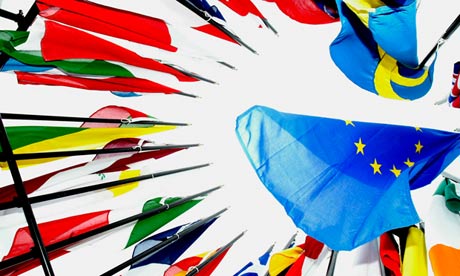 Image: The poll found a vertiginous decline in trust in the EU in countries that were traditionally pro-European. Photograph: Ian Waldie/Getty Images
Image: The poll found a vertiginous decline in trust in the EU in countries that were traditionally pro-European. Photograph: Ian Waldie/Getty Images
guardian.co.uk - April 24th, 2013 - Ian Traynor
Public confidence in the European Union has fallen to historically low levels in the six biggest EU countries, raising fundamental questions about its democratic legitimacy more than three years into the union's worst ever crisis, new data shows.
After financial, currency and debt crises, wrenching budget and spending cuts, rich nations' bailouts of the poor, and surrenders of sovereign powers over policymaking to international technocrats, Euroscepticism is soaring to a degree that is likely to feed populist anti-EU politics and frustrate European leaders' efforts to arrest the collapse in support for their project.
Problem, Solution, SitRep, or ?:
Recent Comments